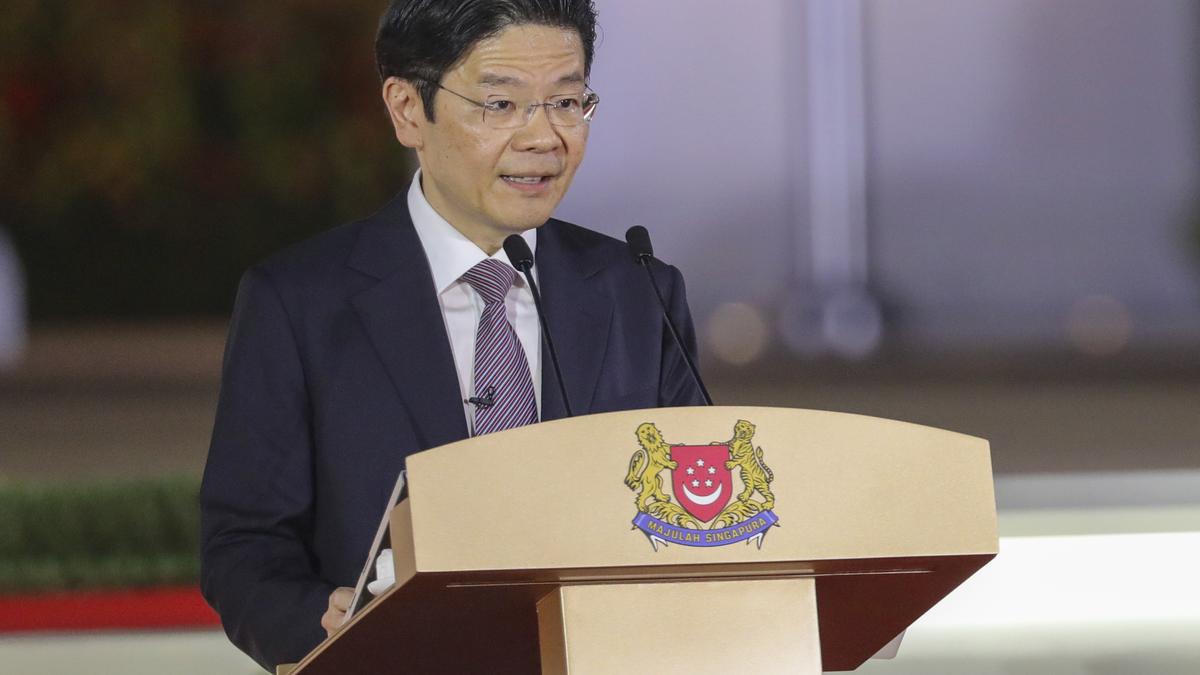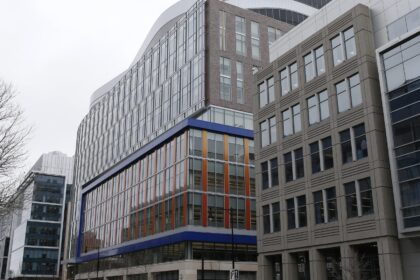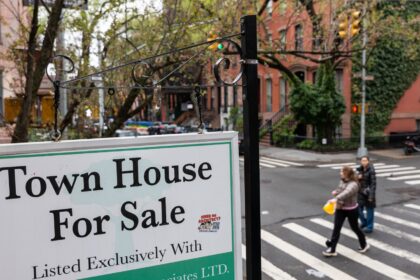Singapore’s new Prime Minister Lawrence Wong vowed to “make tomorrow better than today” as he took his oath of office on Wednesday in a carefully planned political succession aimed at ensuring stability in the Asian financial hub.
A US-educated economist, Mr Wong, 51, succeeds Lee Hsien Loong, 72, who resigned after 20 years. He is the fourth leader of the city-state and the first born after Singapore’s independence in 1965.
Mr Lee’s departure marked the end of a family dynasty led by his father Lee Kuan Yew, Singapore’s first leader, who built the colonial trading post into one of the world’s richest countries during 31 years in office.
Mr Wong paid tribute to his predecessors for their dedication to the nation, saying: “We stand on the shoulders of giants.” But he said his leadership style will differ as he navigates a more troubled world in Singapore.
“This is a passing of the baton, not just between leadership teams, but also between generations,” Mr Wong said. “We will lead in our own way. We will continue to think boldly and far.”
The transition has been meticulously designed by the People’s Action Party, one of the longest-serving political parties in the world and known for its clean and effective governance. This is not expected to change the dynamics in the small country of about 6 million people.
Mr Wong, a civil servant turned politician, rose to prominence when he coordinated Singapore’s successful fight against COVID-19. But he wasn’t the first choice for the top job.
Heng Swee Keat, former central bank chief and education minister, was the anointed successor, but he withdrew his appointment in 2021. Mr Wong was then picked by the People’s Action Party to fill the vacuum in 2022 and was quickly promoted to Deputy Prime Minister.
Mr Wong warned that Singapore must brace for a “messier, riskier and more violent world” by staying united and breaking new ground. As world powers struggle to shape a new world order, he said protectionism and rampant nationalism will deepen.
Amid the rivalry between China and the US, he said Singapore – which has remained neutral – would continue to engage both countries.
Mr Wong has retained Cabinet and his finance portfolio as he prepares for his first big test in the general election. These should be in 2025. Before taking office, he promoted Trade Minister Gan Kim Yong to one of the two deputy prime ministers. The other deputy is Mr Heng.
Mr Lee stayed on as a senior minister, a path followed by all former prime ministers.
Although victory in the elections is assured, Wong needs to gain a stronger wing after the PAP suffered a setback in the 2020 polls due to growing voter dissatisfaction with the government.
Singapore blossomed under Mr Lee’s rule into one of the richest countries in the world, but it also became one of the most expensive cities to live in. The PAP has also been criticized for tight government control and a government-knows-best attitude, media censorship. and the use of oppressive laws against dissidents.
Issues such as rising income inequality, increasingly unaffordable housing, overcrowding caused by immigration and restrictions on freedom of expression are often used as fodder by the opposition and have loosened the PAP’s grip on power.
“One party’s dominance in Singapore is weakening, but the challenge for the PAP leadership is to slow down the process,” said Eugene Tan, a law professor at Singapore Management University.
Bridget Welsh, a Southeast Asian political expert, said Lee “will be remembered for calmly and successfully steering Singapore through the turbulent waters of the 2008-2009 financial crisis and COVID-19. He helped build resilience in Singapore. … (But) Singapore has become a more complex society, with more open demands, making the task of governing (for Wong) more challenging.”
Mr Wong was born seven years after Singapore seceded from Malaysia and became independent. His father was a migrant from China and his mother was a teacher. Unlike many senior PAP leaders, he did not come from a privileged background. Observers have said this could help him interact better with ordinary citizens.
Mr. Wong earned a scholarship to study in the US, after which he earned a master’s degree in economics from the University of Michigan and another master’s degree in public administration from Harvard University. He spent years in public service, including as private secretary to Mr Lee before entering politics in 2011. He was responsible for the defence, education, communications, culture, community and youth portfolios.
Like Mr Lee, Mr Wong is active on social media. He is married and has no children. He doesn’t reveal much about his private life, but does provide a glimpse into his interests in music and dogs, and he is a fan of tennis star Roger Federer. He often posts videos of himself playing the guitar.
Mr Wong has launched a Forward Singapore plan to give Singaporeans a say in how they can develop a more balanced, vibrant and inclusive agenda for the next generation.
“This is my promise to all Singaporeans. I will serve you with all my heart. I will never settle for the status quo. I will always look for better ways to make tomorrow better than today,” said Wong.
Professor Tan said Mr Wong’s immediate priorities will be to tackle issues including the rising cost of living, housing affordability and job security. “Bread-and-butter issues remain critical even for a prosperous country, partly because of Singapore’s innate vulnerabilities,” he said.





















